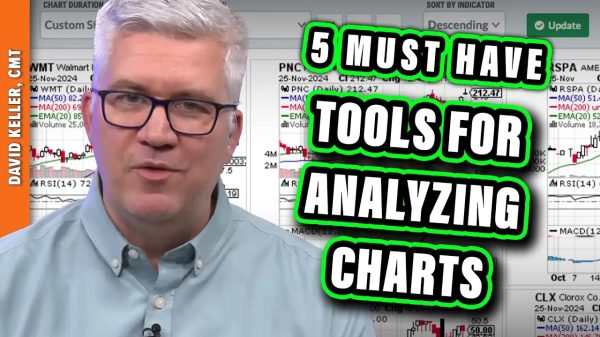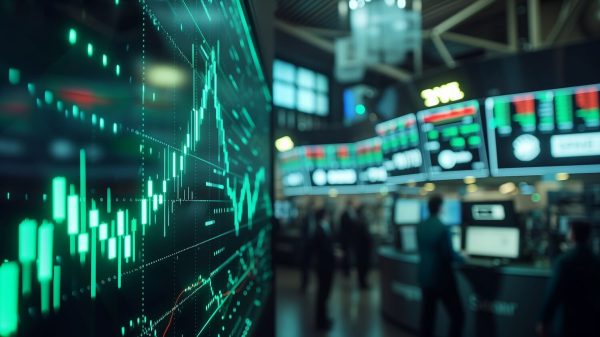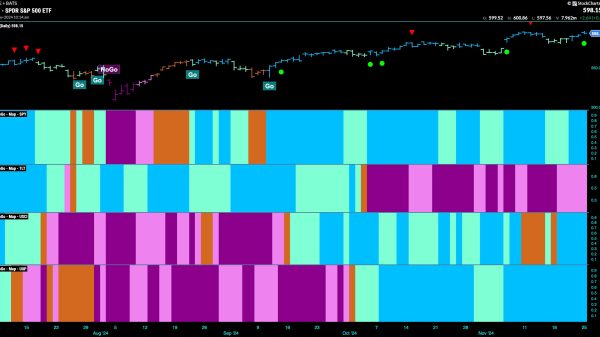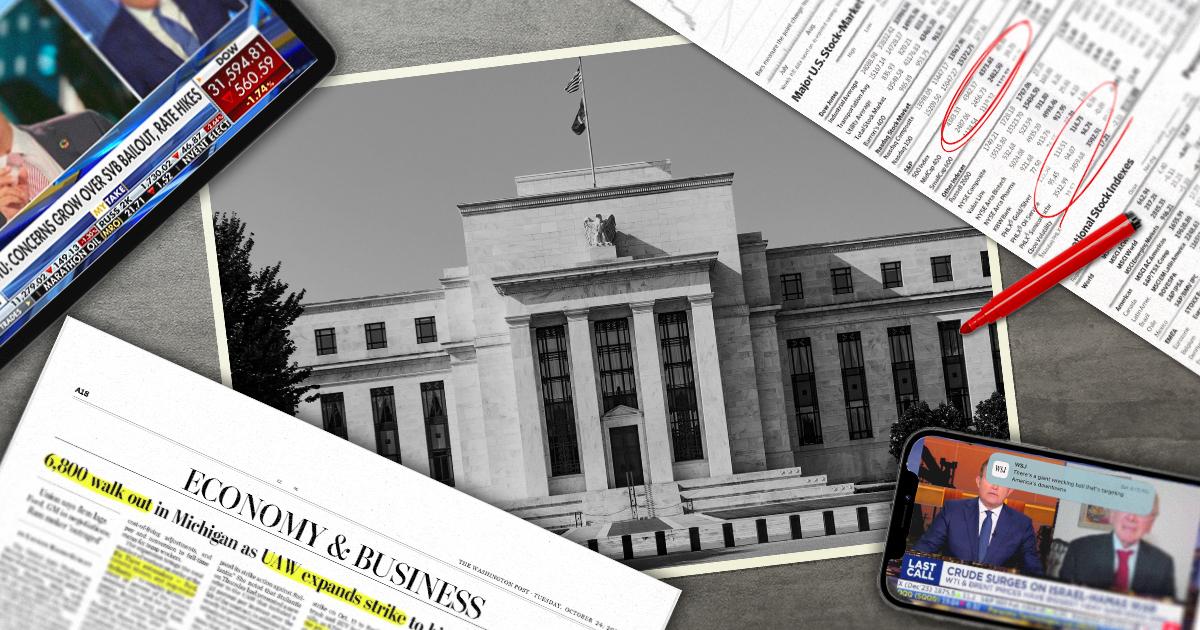Trying to keep up with economic news is exhausting. Tune into the financial news channels or scroll through any number of economic blogs, and you’ll be hit with a fire hose of alarming headlines, scary-looking graphs, and a tone-deaf establishment emphatically declaring that the economy is better than ever.
Debates rage on social media and in the halls of Congress over the most trivial policy details. All while the financial markets swing dramatically with every political antic or geopolitical flare-up. It’s difficult to separate what’s meaningful from the distractions and the outright falsehoods in the daily information deluge. What’s important can get lost.
We live in the most materially wealthy era in human history. The amount of comfort, convenience, and abundance we enjoy today is astonishing when compared to all of human history. And yet young Americans are having a harder time affording the same lifestyle choices—like buying a home and raising a family—that previous generations enjoyed. Something is clearly working in our economy, and something else is clearly not.
And so, if we’re to stay grounded among all the noise of the economic news cycle, it is imperative we take a step back and understand what policies actually lie at the root of our economic problems as well as what’s responsible for all that’s gone right.
In the keynote lecture of the Mises Institute Supporters Summit earlier this month, Dr. Jörg Guido Hülsmann put the monetary system at the center not only of much of our economic pain but of our cultural problems, too.
Our monetary system, Hülsmann explained, is unprecedented in human history. Until recently, the only comparable historical examples were wartime economies fueled by money printing. But since World War II, the federal government has elected to subject us to a perpetual wartime economy.
The result has been eighty years of permanent price inflation. Those politically connected enough to get the newly created money early benefit greatly from this system. But for the rest of us, the adverse effects are hard to understate. For one, perishable goods—notably labor—trade at a discount compared to more durable goods and assets. That’s why it takes longer to build enough wealth on the labor market to afford durable things like houses.
Permanent price inflation also incentivizes debt financing, bringing about what Hülsmann calls a “culture of debt.” The monetary system encourages people to be more shortsighted and reductionist in their economic decisions. Politically, an indebted population is also much easier to control.
Other effects outlined in the speech are that firms become artificially big, the consumption of stuff takes priority over the cultivation and production of resources, the quality of our elites and leaders diminishes, and generosity recedes out of community life.
There are, of course, countless other problems facing us—even in the economic policy sphere. But the destruction of our money is the toxic root of so many of these other issues.
But understanding what’s causing the problems in our economy is only half the battle. We also need a firm grasp of what’s working. Because it’s not all bad. Plenty of wealth is still being created every day. And if we’re ever going to return to a sustainable, growing economy, we need to know how wealth is created.
Earlier this year, Mises Institute senior fellow Shawn Ritenour published an award-winning book on this exact topic, The Economics of Prosperity. In it, Ritenour uses economic theory and history to define the necessary conditions for economic growth. These are the market division of labor, a robust capital structure, and the subsequent improvements in technology. All of this production and investment must be coordinated, making entrepreneurs a necessary component of economic growth. In Ritenour’s words, “Economic progress is the happy consequence of a highly developed division of labor, taking advantage of an increasing capital structure, embodied in technically advanced capital goods, all wisely invested by entrepreneurs.”
Entrepreneurs are uniquely positioned to coordinate the process because, unlike political leaders, they are subjected to the feedback and incentives of the profit and loss system. That allows them to conduct economic calculation—constantly reallocating resources to their most valued uses.
Crucially, the entire process of economic growth relies on the institution of private property. As Ritenour explains, “People can only benefit from the division of labor if they are free to exchange the goods they produce.” Entrepreneurs need ownership over capital and resources to open new lines of production and sell the resulting products.
Finally, Ritenour cites the need for sound money. If entrepreneurs are going to conduct economic calculation, they need a reliable monetary unit. On top of that, none of the above conditions for growth matter unless people are willing to forgo some present consumption to save and invest in production—which is, remember, the exact kind of behavior that permanent price inflation discourages.
These kinds of big-picture considerations are often absent from the economic discourse of the day. That’s good news for the political class and their crony friends, who all benefit from the status quo. But for those of us who want to bring about meaningful change, these are the exact considerations we must work to keep front of mind, day in and day out. The political monetary system is a debilitating, destructive scam that needs to be exposed and abolished. We need a sound monetary system, and we need to recommit to the institution of private property. Don’t let the melodrama of the daily news cycle let you forget that.
























